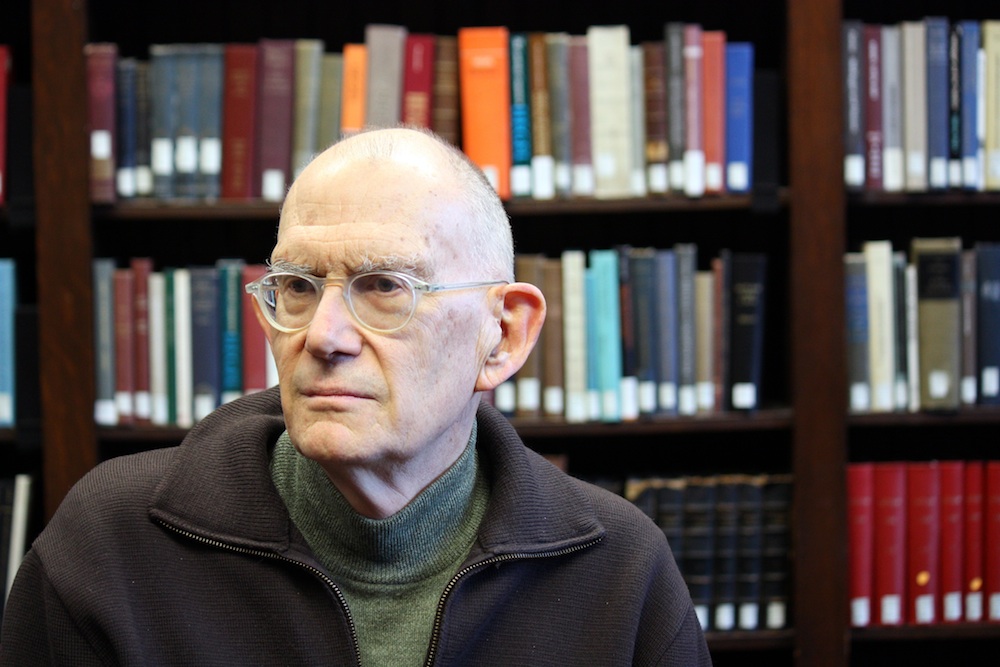
Asking Philosopher T. M. Scanlon ‘What We Owe to Each Other’
FM sat down with Thomas M. Scanlon, Professor of Natural Religion, Moral Philosophy, and Civil Polity, Emeritus, to chat about philosophy and the fourth and final season of NBC’s “The Good Place” — a comedy TV series created by Michael Schur ’97 about a woman who wakes up in the afterlife and must grapple with what it means to lead a moral life. Scanlon wrote an influential book on moral philosophy called “What We Owe to Each Other,” whose title was adopted into an episode of Schur’s series.
Editor’s Note: This interview has been edited for length and clarity.
FM: Tell us more about your book, “What We Owe to Each Other.” What is the central message of the book, and how does it feature in “The Good Place?”
The central chapters, chapters four and five, set out and defend a way of thinking about a certain aspect of morality I want to call “what we owe to each other.” This doesn’t cover all of what we normally call “morality,” but it captures a central section of it: Our obligations to other people in general. The idea is that actions are wrong if a principle that permitted that action couldn’t be justified to the affected people in the right way.That’s what gets featured in “The Good Place.”
FM: How did you become involved in the TV series “The Good Place”?
I had no role in its genesis. Well, only a really, really indirect one. If you’re a professor in a place like Harvard or Princeton, you get really good students, undergraduates and grad students. I had a student named Pamela Hieronymi who was a graduate student here, and now teaches at UCLA. And because she had written a paper on the question of whether you could become a good person by trying to become a good person, Michael Schur got in touch with her. And she became a consultant on the show. When she was talking about different views of morality, she mentioned mine as one possibility. So he went and looked at the book.
FM: Has the show fairly represented your philosophical views?
I think they did a very good job. I could quibble a little bit with exactly how [Michael Schur] formulates my views, but I wouldn’t blame it on him rather than on me.
It’s a weird thing to have your book appear as a character on a TV show. It’s sort of like having your child chosen to be in the school play. You’re pleased that they’re there, but worried that something embarrassing is going to happen. But so far not. There was this one scene where somebody mentions to [the protagonist] Eleanor that she ought to be concerned with “what we what we owe to each other.” She Googles it, and she comes up with a YouTube video of Chidi [a character who is a philosophy professor] giving a lecture in which he says: “As the philosopher Tim Scanlon said decades ago…” [laugh] That was really, really weird to see. Of course, I wrote a book and I hoped people would read it, but, anyway, it was a shock.
FM: How do you think that a subject like philosophy should be presented to the general public? Does “The Good Place” achieve this?
I think that one of the remarkable things about “The Good Place” is that it manages to make people feel the pull of these different philosophical positions. Maybe Chidi makes people see why he decided to reject utilitarianism or Kant or whatever. And so it does get people to go through some of the steps that lead to arriving at one kind of conclusion or the other, rather than just being told the conclusion.
FM: Which character do you most identify with?
Well, how could I identify with any character other than Chidi? [Actor] Will Harper gets a lot of credit for this. He really captures a certain kind of academic character: Indecisive, concerned to sweat the details in a way that other people don’t even bother with, and a certain kind of earnestness. He really gets it. I just hope that being like that isn’t going to be made too much fun of.
FM: The ‘Good Place’ and the ‘Bad Place’ both exist in the universe of the show. What is your conception of the ‘Bad Place’?
In a famous play called “No Exit,” philosopher Jean-Paul Sartre says hell is other people. In my view, you could say hell is other people, that is to say, hell is the relationship with other people that you create by treating them badly. My idea of the bad place is the place that you’re in where you’ve spoiled your relations with the other people you’re living with, and you can’t be friends or trust each other, or do any of the things that you’re supposed to do when you interact with friends or even strangers.
FM: Last but not least, why study philosophy?
It’s worth studying philosophy if you’re curious about why you think what you think. The reason to study philosophy is it’s good to have a better understanding of the ideas that we’re acting on, and maybe we would find mistakes that we were overlooking.


